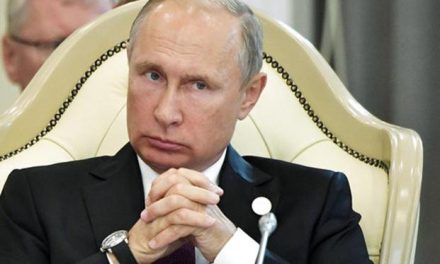Image Credits: Photo: AP.
I can’t decide if it’s generous or cruel to compare former New Jersey governor Chris Christie to Henning von Tresckow, but I see them as having at least a few things in common. Christie, as the New York Times reports, has recently launched a bid for the Republican Party’s 2024 presidential nomination and “has positioned himself as the person most willing to attack both Mr. [Donald] Trump, his former friend turned adversary.” His campaign is being widely described in the press as a kamikaze mission because it is considered self-sacrificing and suicidal for a GOP politician to forcefully attack the twice-impeached, twice-indicted ex-president.
Henning von Tresckow (1901-1944) was the chief of staff of Nazi Germany’s 2nd Army on the Eastern Front and he blew his own head off with a grenade when he realized that his plot to kill Adolf Hitler had failed. His suicide came one day after a bomb exploded in a conference room at the Wolfsschanze (Wolf’s Lair), Hitler’s first Eastern Front military headquarters in World War II. Hitler has injured and his eardrums were perforated, but he survived. Tresckow’s gruesome method of suicide was an effort to disguise his guilt and protect his co-conspirators by making it look like he’d been killed by partisans.
Right before he took that decision he made the following statement to his friend and adjutant, Fabian von Schlabrendorff.
“The whole world will vilify us now, but I am still totally convinced that we did the right thing. Hitler is the archenemy not only of Germany but of the world. When, in few hours’ time, I go before God to account for what I have done and left undone, I know I will be able to justify what I did in the struggle against Hitler. God promised Abraham that He would not destroy Sodom if only ten righteous men could be found in the city, and so I hope for our sake God will not destroy Germany. No one among us can complain about dying, for whoever joined our ranks put on the shirt of Nessus. A man’s moral worth is established only at the point where he is ready to give his life in defense of his convictions.”
Here I need to pause to explain that the shirt of Nessus is a reference to the death of Heracles, the famous Ancient Greek hero. Heracles killed a centaur named Nessus with a poison arrow, but before Nessus died he convinced Heracles’ wife that his blood could be used as a potion to assure her husband’s faithfulness. She put some of the centaur’s blood on a shirt or tunic that she then gifted to Heracles. When he put it on, the poisoned blood began to cook him alive. To escape the pain, he threw himself on a funeral pyre.
The analogy here is that those who served in the German armed forces under Hitler had essentially poisoned themselves and could not escape terrible consequences. Of course, this idea is coupled here with the story of God’s destruction of Sodom as described in the Book of Genesis. As Tresckow noted, God offered to spare Sodom if Lot could find 10 honorable men living there, but this proved impossible. In Tresckow’s mind, it was essential that the same fate not meet Germany, and his plot to kill Hitler was worth trying even if success was unlikely so that God and posterity would know that honorable Germans did exist and did try to stop the atrocities.
As you might imagine, a German general couldn’t serve on the Eastern Front without having something to do with those atrocities. In Tresckow’s case, he signed the infamous Heuaktion order which authorized the abduction 40,000 to 50,000 Polish and Ukrainian children aged 10 to 14 for transport to Germany where they were employed as slaves. Perhaps he felt it was necessary to issue such orders to assure he remained in a position to work on Hilter’s assassination which he already been plotting for some time, but he knew he was beyond full redemption.







